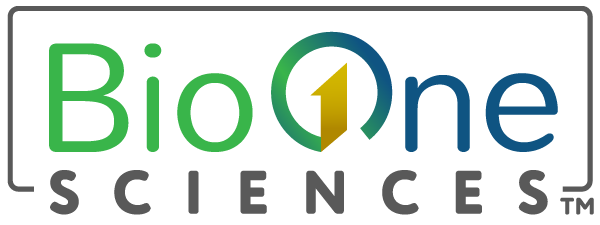
The Hidden Dangers of Heavy Metals and Toxins in Supplements
Are the supplements in your kitchen cabinet actually “healthy”?
Supplements can be a powerful tool for filling in the gaps in our diet. However, it’s essential to recognize that not all supplements are created with the same level of care and quality.
While many offer genuine benefits, others may harbor hidden dangers — specifically, toxic heavy metals and other harmful contaminants. Understanding these risks and knowing how to choose supplements that prioritize purity and safety is critical for protecting your health.
Understanding Heavy Metals and Toxins in Supplements
Heavy metals, including lead, mercury, arsenic, and cadmium, are naturally occurring elements that can be harmful when ingested in significant amounts.
These metals can find their way into dietary supplements during various stages of production — through contaminated raw materials, improper manufacturing processes, or even during packaging.
In addition to heavy metals, supplements can also be compromised by other toxins, such as bisphenol A (BPA) and harmful bacteria. The presence of these contaminants can pose serious health risks, making it imperative to ensure the supplements you consume are thoroughly tested and safe.
The Impact of Heavy Metals on Human Health
Exposure to heavy metals poses well-documented health risks. Long-term ingestion of these toxins can lead to a range of serious health issues, including neurological damage, organ dysfunction, and an increased risk of cancer.
Lead, for instance, is notorious for its detrimental effects on cognitive function, particularly in children, where it can cause developmental delays and impair learning abilities.
Mercury exposure is equally concerning, as it can damage the nervous system and other vital organs, leading to symptoms such as memory loss, difficulty concentrating, and fatigue.
The cumulative effect of heavy metals over time can be devastating. Even low levels of exposure, if sustained, can lead to significant health problems.
This is why it’s crucial to be vigilant about the supplements you take, ensuring they are free from these dangerous contaminants.

Case Studies and Research Findings on Contaminated Supplements
Heavy Metal Contamination in the UAE Market
A comprehensive study conducted in 2020 focused on dietary supplements available in the UAE, uncovering significant findings regarding heavy metal contamination. The research analyzed a variety of supplement types, including herbal, vitamin, and mineral products, and found that some contained levels of cadmium, lead, and arsenic that could pose health risks if consumed regularly over time. The study emphasized that factors such as the country of origin, the combination of ingredients, and the form in which the supplement is consumed can greatly influence the likelihood of contamination (Jairoun et al., 2020).
Contamination in Herbal and Ayurvedic Supplements
Herbal and Ayurvedic supplements, often marketed for their natural and traditional benefits, have also been found to contain dangerously high levels of heavy metals. Reports from various studies indicate that traditional remedies, particularly those from Asian and Indian origins, are often contaminated with lead, mercury, and arsenic. In some cases, these metals are intentionally added due to cultural practices, but the health risks associated with such contamination are significant. Cases of heavy metal poisoning linked to these supplements highlight the critical need for stringent quality control (Garvey et al., 2001; Saper et al., 2008).
Concerning Findings in Protein Supplements
Protein supplements, widely used for muscle building and weight management, have also been found to contain heavy metals in various studies. This serves as a reminder that no category of supplements is immune to contamination risks, underscoring the importance of rigorous testing and quality assurance across the entire supplement industry.
The Unethical Practices in the Supplement Industry
Sourcing and Quality Control Issues
One of the primary reasons for heavy metal contamination in supplements is the sourcing of substandard ingredients and lax quality control during manufacturing. Contaminants can be introduced at various stages of production, from the raw materials used to the conditions in the manufacturing facilities. For example, medicinal plants grown in contaminated soil can absorb heavy metals, which are then carried over into the final supplement product. Without stringent quality controls, these contaminants can go undetected, posing a serious risk to consumers.
Misleading Marketing and Labeling
Another significant issue in the supplement industry is misleading marketing and labeling. Some manufacturers may under-report or completely omit the presence of heavy metals and other contaminants in their products. This can create a false sense of security for consumers, who may believe they are choosing a safe product when, in fact, they are not. The illusion of safety is particularly concerning when it comes to products labeled as "organic" or "natural," as these terms are often mistakenly associated with purity and safety.
Lack of Regulation and Oversight
The regulatory landscape for dietary supplements is another area of concern. In many countries, including the United States, supplements are not subject to the same rigorous testing and approval processes as pharmaceuticals. This lack of regulation means that the responsibility often falls on consumers to ensure that the products they are taking are safe. Unfortunately, without proper oversight, unscrupulous manufacturers can take advantage of regulatory gaps, producing and selling products that may be harmful.
Why People and Practitioners Choose BioOne Sciences
BioOne Sciences operates with an unwavering commitment to providing safe, effective, and affordable supplements. Born out of a desire to transform healthcare, we focus on creating high-quality, therapeutic-grade products that support holistic healing without the overwhelming costs. Our supplements are rigorously tested to ensure they are free from heavy metals and toxins, making them a trusted choice for those seeking natural, evidence-based approaches to health.
> Learn more about our mission here.


